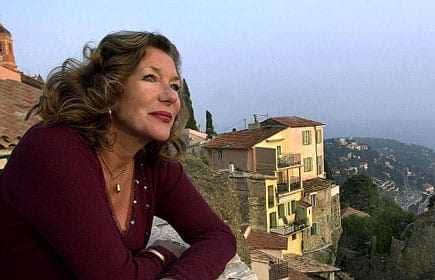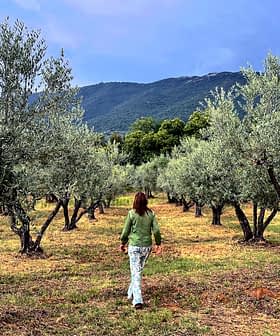
Actress and writer Carol Drinkwater captivated the audience at the University of California at Davis Olive Center with stories about discovering ancient olive trees on her land and tracing the history of olive trees throughout the Mediterranean.
Center Director Dan Flynn introduced Drinkwater as “one gutsy person,” for her solo journey through war zones and other dangerous places to uncover the route of olive history and culture.
As an actress, Drinkwater is best known for her role as Helen Herriot in the TV series All Creatures Great and Small. Her interest in olive trees started when she and her film director fiancé bought an overgrown plot of land in France. After cutting back a jungle of vegetation, they discovered 68 gnarled olive trees estimated to be 400 years old. They began learning about olive farming and at the end of the first season, brought their harvested olives to a miller who proclaimed the oil exceptional, said Drinkwater.
Drinkwater became inspired to learn more about the history of olives. When a fan sent her a photo of an ancient tree in Lebanon, she started on a journey that took her to Syria, Algeria, Lebanon, Turkey, Malta, Greece and other Mediterranean countries. Drinkwater said that she was held at gunpoint, stuck in Damascus during the September 11 terrorist attacks and had to be “parceled” through Algeria in the company of beekeepers. She found a stand of 6 thriving olive trees in Lebanon that were planted around 4,000 B.C.
Her journey is chronicled in her book, The Olive Route. In total, she has written six books about her olive adventures with more than one million copies sold worldwide, said Flynn. Drinkwater’s latest work is a series of documentaries inspired by her journey.
Drinkwater will be appearing at the New York International Olive Oil Competition on April 16 and 18. She will offer a talk about her discoveries on the olive route and make a presentation on “how to present liquid gold,” said Drinkwater. The marketing segment will include lessons learned from her observations of 6,000 years of olive trade.








